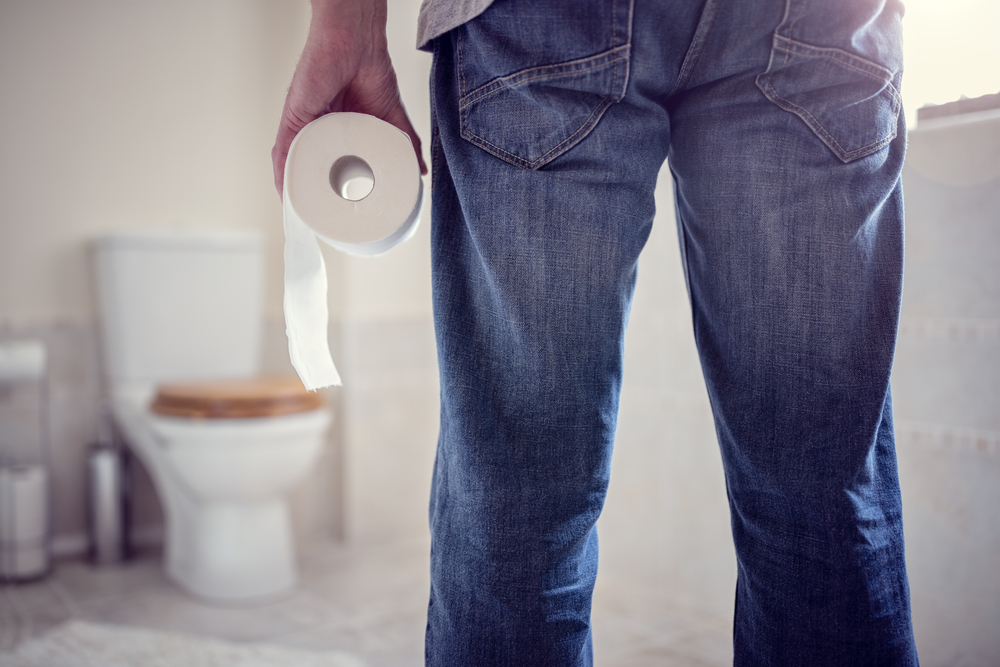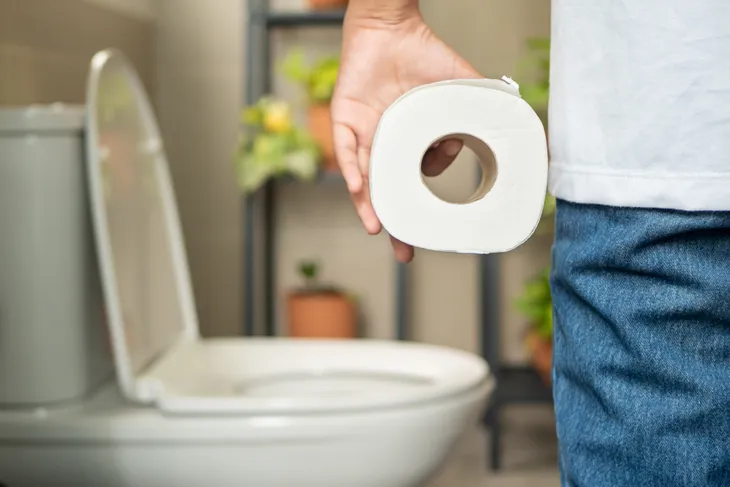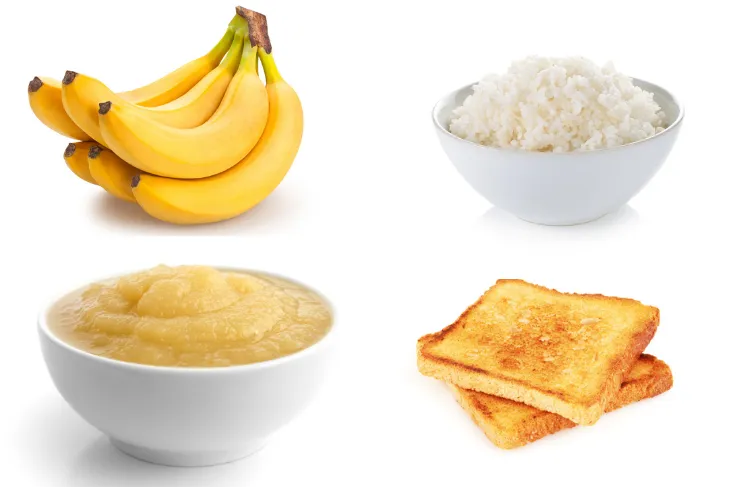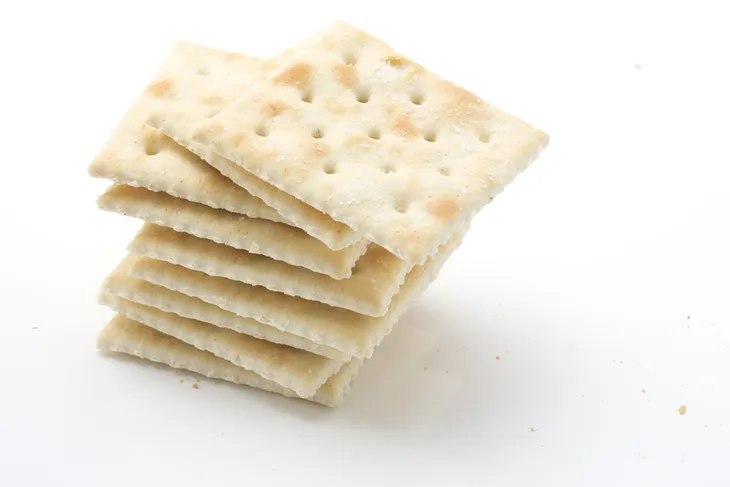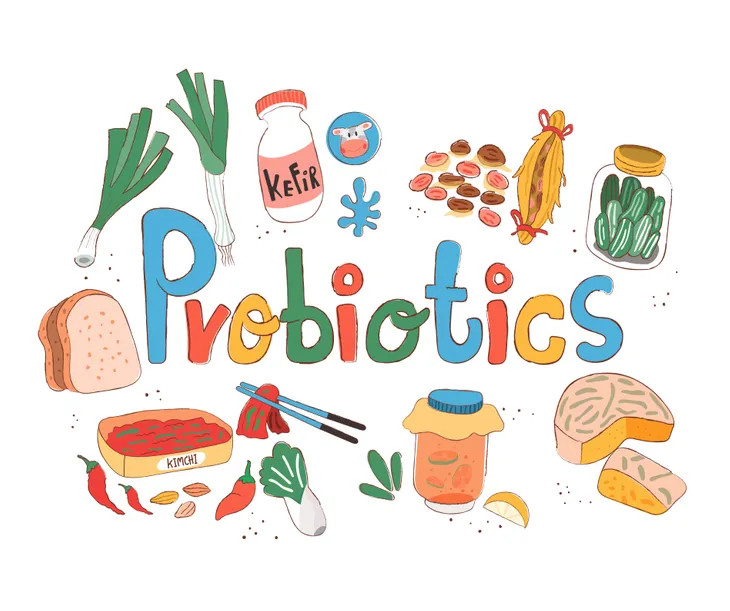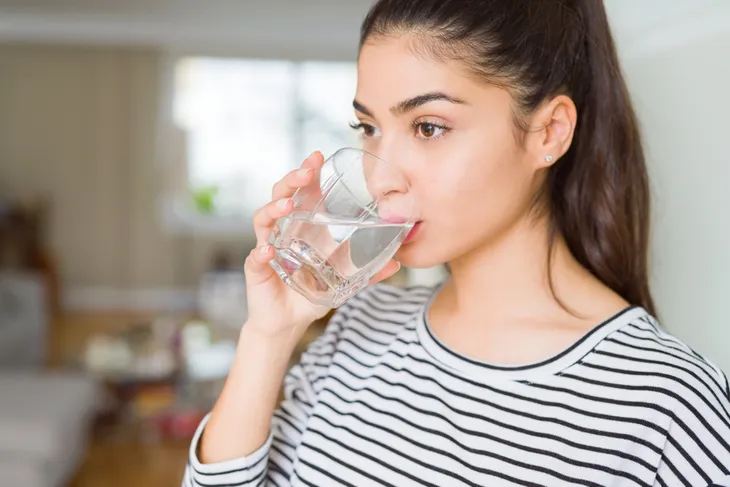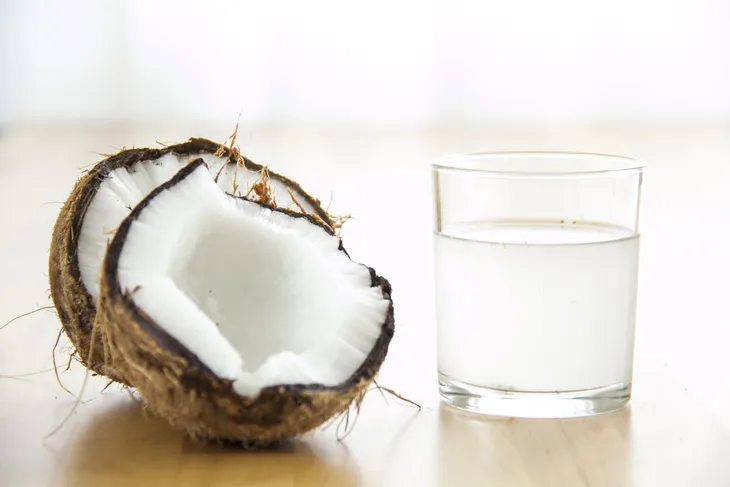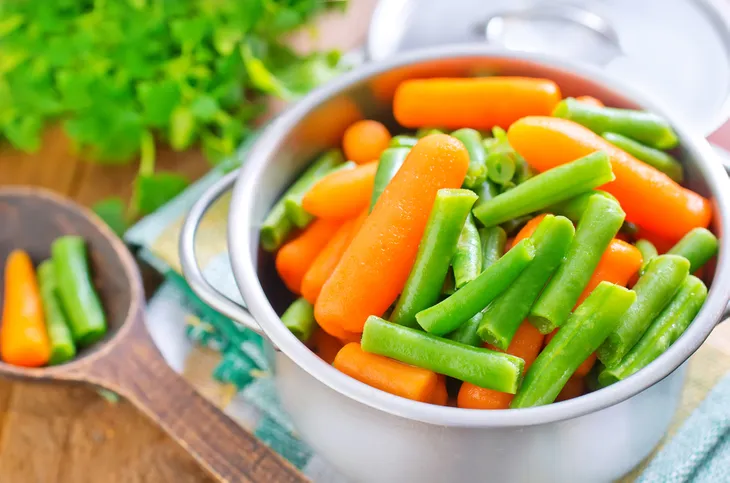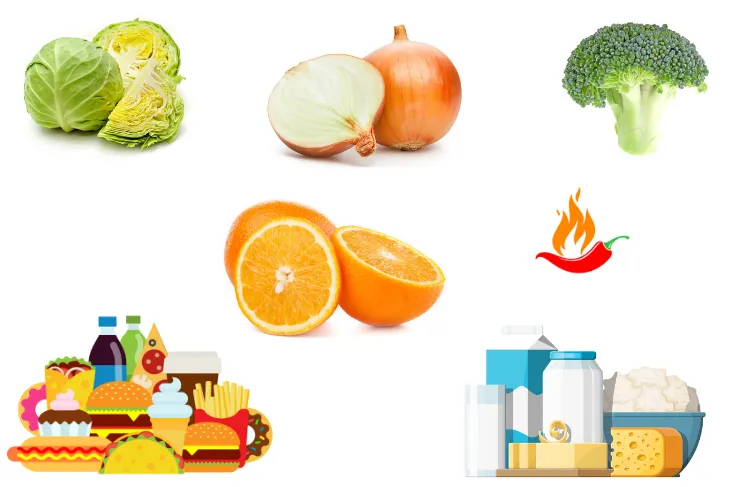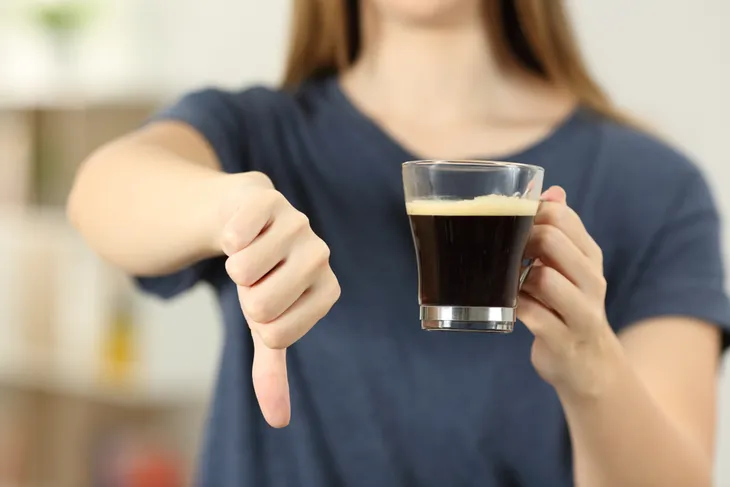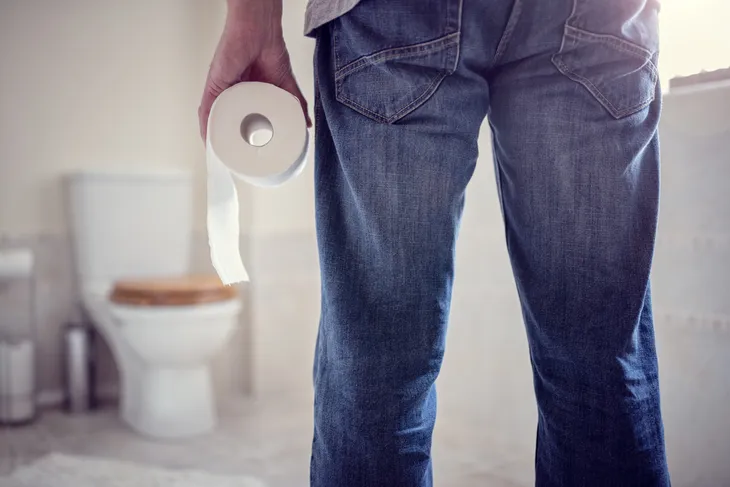While it’s by no means a pleasant topic to discuss, we’ve all experienced it before. Diarrhea is defined as having more than three loose or watery stools a day and can occur for a number of different reasons such as illnesses like irritable bowel syndrome, a bacterial infection, food allergy, or simply just eating something that doesn’t agree with you. Most of the time it isn’t serious and can be managed at home.
Regardless, it’s no doubt an uncomfortable situation to be in and unfortunately, there’s not much a person can do to stop diarrhea once it starts. The best treatment is rest, a restricted diet, and drinking lots of water. Within this restricted diet, there are some foods that can help ease the symptoms, or at least avoid making the situation any worse.
What Is Diarrhea?
Diarrhea is a condition which leads to a loose or watery stool, which often occurs with an extremely urgent need to go to the bathroom. Diarrhea can be accompanied by other symptoms like nausea, stomach cramps, fever, and bloating.
In most instances, the cause of a diarrhea episode is not identified. This is because most cases resolve themselves after a couple of days, without medical intervention. A viral infection called gastroenteritis is the most common cause of diarrhea. While not serious, it can be extremely unpleasant.
Other possible causes of diarrhea include:
- A bacterial infection
- Ingested toxins
- Consuming foods that upset the gut
- Intolerances to specific foods
- Certain medications
- Radiation therapy
Whatever the cause of the diarrhea, it is usually possible to reduce the severity of symptoms by consuming certain foods and avoiding others. Here’s a look at some foods to eat if you’re experiencing diarrhea…
BRAT Diet
You’ve probably heard of the BRAT diet, and for those who haven’t it stands for: bananas, rice (white), applesauce, and toast. These are the top recommended foods for diarrhea because they are nice and bland which means they won’t aggravate the digestion system. They can also help firm up stool.
According to the Cleveland Clinic, for most healthy people they will be recommended to eat foods that are whole-grain and high in fiber. The only time this rule doesn’t apply is when a person is experiencing diarrhea because eating fiber could spell trouble. You’ll want to eat foods that are low in fiber, such as white rice and white bread, to make stools more firm.
Bananas are also helpful because they are high in potassium which helps replace any nutrients your body is losing from the diarrhea, as well as a rich source of pectin, says VeryWell Health, and easy to digest. And lastly applesauce is better than eating an apple because the skin of an apple contains insoluble fiber which can irritate the digestive system.
Other Bland Foods
There isn’t a particular food group that will help treat diarrhea, notes WebMD, however, in addition to following the BRAT diet, the source suggests people with diarrhea should try to stick with bland foods like potatoes, peanut butter, plain crackers, pretzels, skinless chicken or turkey, and yogurt.
“You want to eat plain, simple foods, especially in the first 24 hours,” says Peter Higgins, MD,PhD, the director of the inflammatory bowel disease program at the University of Michigan in Ann Arbor to Everyday Health. “It is best to eat thicker, bland foods, including oatmeal, bananas, plain rice, and applesauce.”
The foods above are all extremely low in fiber because this will allow the body to process them slowly. A normal, healthy diet will include lots of high-fiber foods that keep waste moving through the gut. Obviously, speeding things up in that department is the last thing you want when suffering from diarrhea. Many of these foods will also help to soak up excess water in the gut, which should make the stool more solid.
So as not to overload your digestive tract, it is wise to eat several small meals throughout the day as opposed to consuming lots of food in one sitting. This will allow you to “test” whether a certain food is going to aggravate your gut without consuming too much of it.
Probiotics
Probiotics are synonymous with gut health. Thanks to their live bacteria, probiotics keep our gut healthy by balancing out both the good and bad bacteria in the gastrointestinal tract.
It’s important to note that anyone with diarrhea should likely avoid dairy. The only exceptions to this are probiotics like yogurt or kefir, a fermented milk drink with probiotics. “These can restore the beneficial bacteria that your body flushes out with diarrhea,” writes the Cleveland Clinic. When choosing these products, be sure to opt for those that are low in sugar because sugar can potentially aggravate diarrhea.
Drink Lots of Water
One of the main concerns when a person is suffering from diarrhea, particularly for more than a couple of days, is that they are losing a lot of fluids. It’s important to drink plenty of liquids and stay well hydrated.
Medical News Today advises drinking lots of water throughout the day and then add in an extra cup of water after every loose bowel movement. This will help prevent dehydration and flush any toxins out of the body.
Replenish Electrolytes and Minerals
In addition to water, Healthline says people with diarrhea can try consuming clear broths, like chicken or beef broth (with the grease removed). You’ll also want to drink electrolyte-enhanced water or water with vitamins or electrolytes (i.e., coconut water). You can purchase solutions like Pedialyte or try a hot drink. But only if it’s a very weak and decaffeinated tea.
“Look for liquids with sugar and salt — Pedialyte or full-salt soups work well,” says Higgins to Everyday Health. “If your urine is not clear, you are not drinking enough.”
Cooking Tips
When it comes to diarrhea, the way our food is prepared can either help or hurt the situation. Heating up certain foods can change their chemical structure making them easier to digest. Vegetables like carrots, green beans, beets, acorn squash, and peeled zucchini are a good example of this, explains VeryWell Health. These foods are all easy to steam or boil.
Another cooking tip to keep in mind is to keep things bland. Do not add butter, margarine, sour cream, or gravy. These can upset the digestive system. If you need to add a little bit of flavor, sprinkle some salt.
Meat should also be cooked in a very bland manner without seasonings, butter, or oils. You can steam, bake, or broil meat. To add some flavor, VeryWell Health suggests basting it with chicken broth.
Foods to Avoid
Just as there are foods that can help with diarrhea, there are most certainly foods that can make diarrhea worse. Unfortunately, there are more foods that can aggravate diarrhea than foods that can help which means the list is long.
According to Healthline, people with diarrhea should avoid milk and dairy products, fried, fatty, and greasy foods. Processed foods, pork and veal, sardines, raw vegetables, onions, corn, citrus fruits, and onions are all off limits. This is because they will be hard for your digestive tract to process these in its sensitive state.
People suffering with diarrhea should avoid high-fiber foods like whole grains because these may encourage waste to move through the gut too quickly. You should also avoid foods that can cause excess gas like cabbage, beans, broccoli and cauliflower. Anything heavily flavored or spicy is also a no-go as these are likely to aggravate gastrointestinal symptoms.
While consuming some sugar can help to keep energy levels up and aid recovery, people suffering from diarrhea should avoid excessively sugary foods and foods that contain artificial sweeteners.
Drinks to Avoid
We’ve already mentioned that people with diarrhea need to stay well hydrated to avoid dehydration, a potential complication of diarrhea. The only drinks a person should have during a bout of loose stools are water, clear broth, or drinks with electrolytes. However, avoid sports drinks with electrolytes as they often contain added sugars or artificial sweeteners. Anything containing artificial sweeteners, including low-calorie sugar alternatives, diabetic sweets, and sugar-free gum, should be cut out altogether since these can have a laxative effect.
You should avoid drinking alcohol, anything with artificial sweeteners, and carbonated drinks. These types of drinks will only make diarrhea worse by contributing to the bloating and cramps. You should cut out any drinks containing caffeine, such as tea, coffee, and soda, as these will worsen symptoms by stimulating your digestive system. Your avoidance of sugar should also extend to fruit juices, sweetened cordials, and high-sugar fruits.
When to See a Doctor
Diarrhea is not a serious condition, however it can become serious if it goes on for too long. In most cases, it can be treated at home with over-the-counter (OTC) remedies, rest, and a temporarily restricted diet. If it lasts longer than two days without getting any better — it’s time to go see a doctor. The concern with diarrhea that lasts longer than two days is that a person may become dehydrated.
You should also go see a doctor if you’re experiencing other symptoms like black or bloody stools, severe abdominal pain, or a fever higher than 102-Fahrenheit (F), notes Healthline.
The source also explains that a doctor should be informed if a child has diarrhea for over 24-hours, haven’t had a wet diaper in three or more hours, a high fever (above 102-F), dry mouth or tongue, cry without tears, sunken abdomen, cheeks or eyes, or black or bloody stools.
